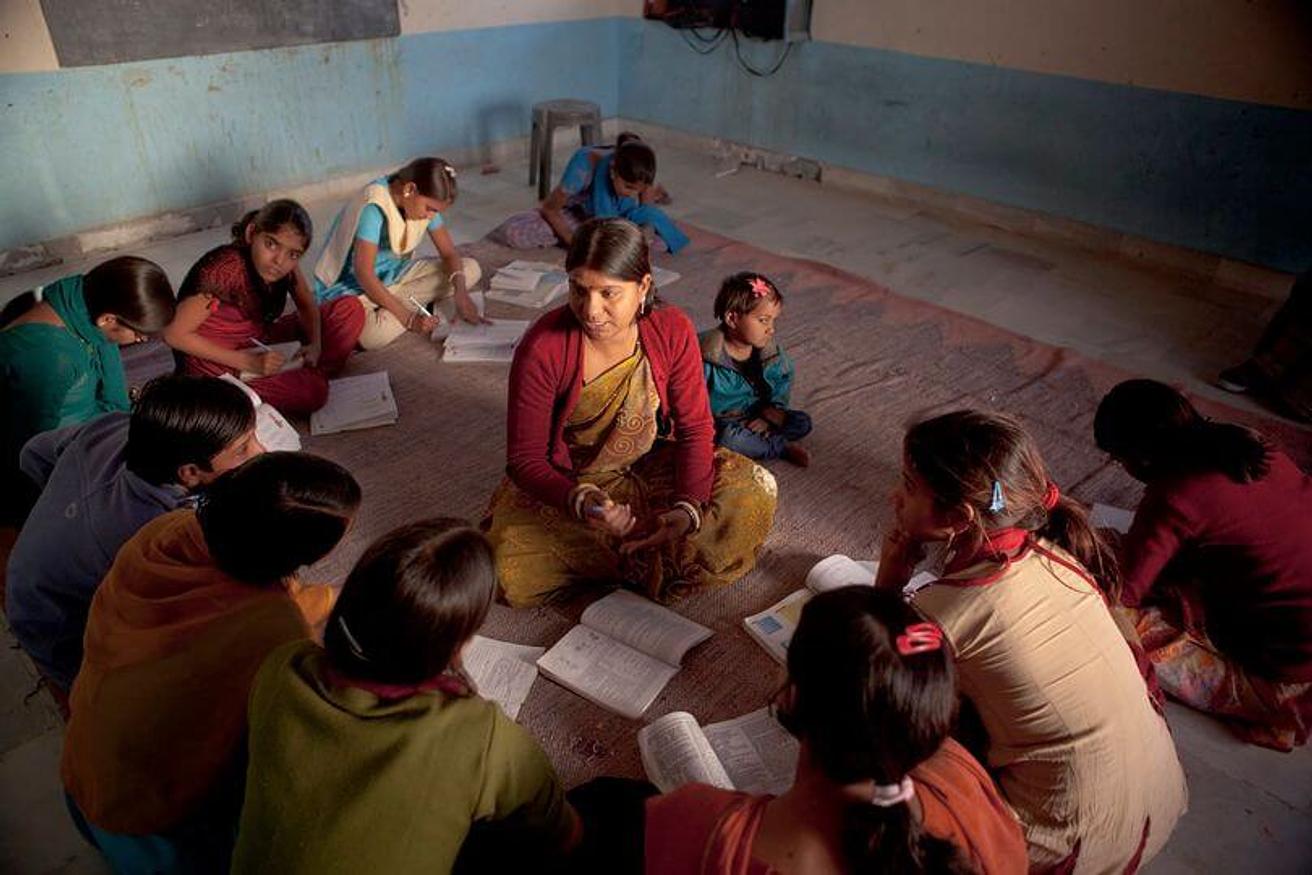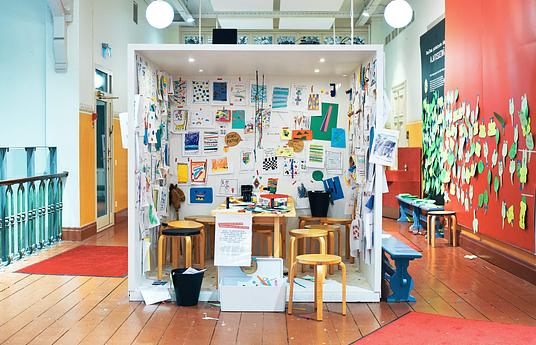What can we learn from each other? Almost every education system on earth has been affected by the coronavirus (COVID-19) crisis. As part of a joint initiative, with the OECD, The World Bank, and the Global Education Innovation Initiative from Harvard University, we have collected stories from across the globe about the solutions education systems are using to continue learning, and how they are adapting these solutions to different student and teacher needs during the crisis.
In this article, we look at how the organization Education Above All (EAA) developed the Internet Free Education Resource Bank (IFERB) to promote continuity of education for the world’s most marginalised learners.
In response to the COVID-19 induced closures of school buildings around the world, Education Above All (EAA), a Qatari non-governmental foundation whose mission is to measurably improve access to high-quality education for vulnerable and marginalised people in developing countries, as an enabler of broader human development, developed the Internet Free Education Resource Bank (IFERB) to help reach some of the world's most marginalised learners.
The Innovation Development Directorate (IDD) team at EAA recognised the disproportionate impact school building closures would have on the world’s most underserved learners for whom alternative learning solutions, such as open-source learning materials that can be used for self-study, were lacking. This prompted the creation of the IFERB – a growing collection of over 120+ Project-Based Learning (PBL) resources and an Activity Bank for students with Disabilities (ABD) that can be implemented using minimal materials while requiring virtually no internet connection.
All of the resources within the bank have been developed by EAA’s Innovation Development Directorate team in collaboration with education experts over 9 months after the start of the pandemic and cover approximately 85% of the learning standards of 5 different international curricula including the US, UK, Qatari, Australian and Indian curricula. The IFERB was developed to serve as a temporary solution to prevent learning loss and provide learners in underserved contexts the opportunity to continue learning where responses to educational continuity have been inadequate. It contains a range of interdisciplinary projects that were designed to meet the learning needs of 4-14 year-old learners in subjects including science, mathematics, language arts, social sciences, economics, and environmental studies. Most projects also have embedded literacy and numeracy practice.
Additionally, the IFERB empowers learners to not only continue engaging academically during school building closures but to also gain several skills that might not be the focus in traditional classroom settings. Most of the projects include activities that build 21st-century skills including critical thinking, creativity, and communication. Through the projects, students are afforded the space to exercise agency and entrepreneurship owing to the projects’ student-centered design and opportunities for an independent inquiry.
By November 2020, the IFERB resources were being piloted with over 120,000 learners through 22 implementation partners that are either non-governmental organisations (NGOs) or schools in 5 countries including India, Kenya, Lebanon, Zambia, and Pakistan, the longest pilot lasting 24 weeks. The projects from the IFERB bank of resources are being used for:
- Distance education,
- Blended learning where schools are partially open, or
- As a supplementary resource where schools are completely open.
The IFERB resources can be implemented using a variety of media depending on the context, including phone calls, SMS, or other text-messaging applications using feature phones or smartphones, radio, and in-person classes. The NGOs involved in projects piloting the resources were chosen based on an open call for applications for 12 week-long IFERB pilots implemented with targeted training and support from EAA. The main selection criterion for the pilots was the potential for impact given the magnitude of the disruption, the need for an alternative educational response, and the ability to sustain the approach. Pilots typically take 4 weeks to roll out during which resources are adapted.
The IFERB projects and approaches were designed to be universally applicable and have been used across multiple geographies, contexts, student groups, and curricula – with the required contextual translations. At USD 3 per child, the cost of the solution is low compared to other stop-gap alternatives that rely on digital learning. It is also easy to deploy, requiring less than 4 weeks of planning before it can be used with the students. IFERB’s adoption in over 22 different student contexts in 5 countries suggests that it is relevant across geographical contexts and user types. Projects have been adapted and translated into 8 languages and are continuing to be contextualised by partners, making them available for a wider global audience.
All of the partners for the 11 completed pilot projects have expressed interest in sustaining this PBL approach even after schools reopen. The IDD team has offered training and feedback to the partners on developing their own projects to create more local assets. EAA is also embarking on partnerships with 3 new government departments in India. With all partners, the focus has been on how to sustain and integrate the approach into the education system – the training, monitoring, evaluation, and learning tools, contextualised projects, and case studies constitute a toolkit for implementation in particular geographies.
If you are interested in learning more about how Education Above All was able to mobilize and develop resources, foster effective use of protocols, manage implementation challenges, monitor success, and how these solutions can be adapted to new contexts download the full report for free on the OECD website.
You can find more education continuity stories from the coronavirus crisis here.
.


